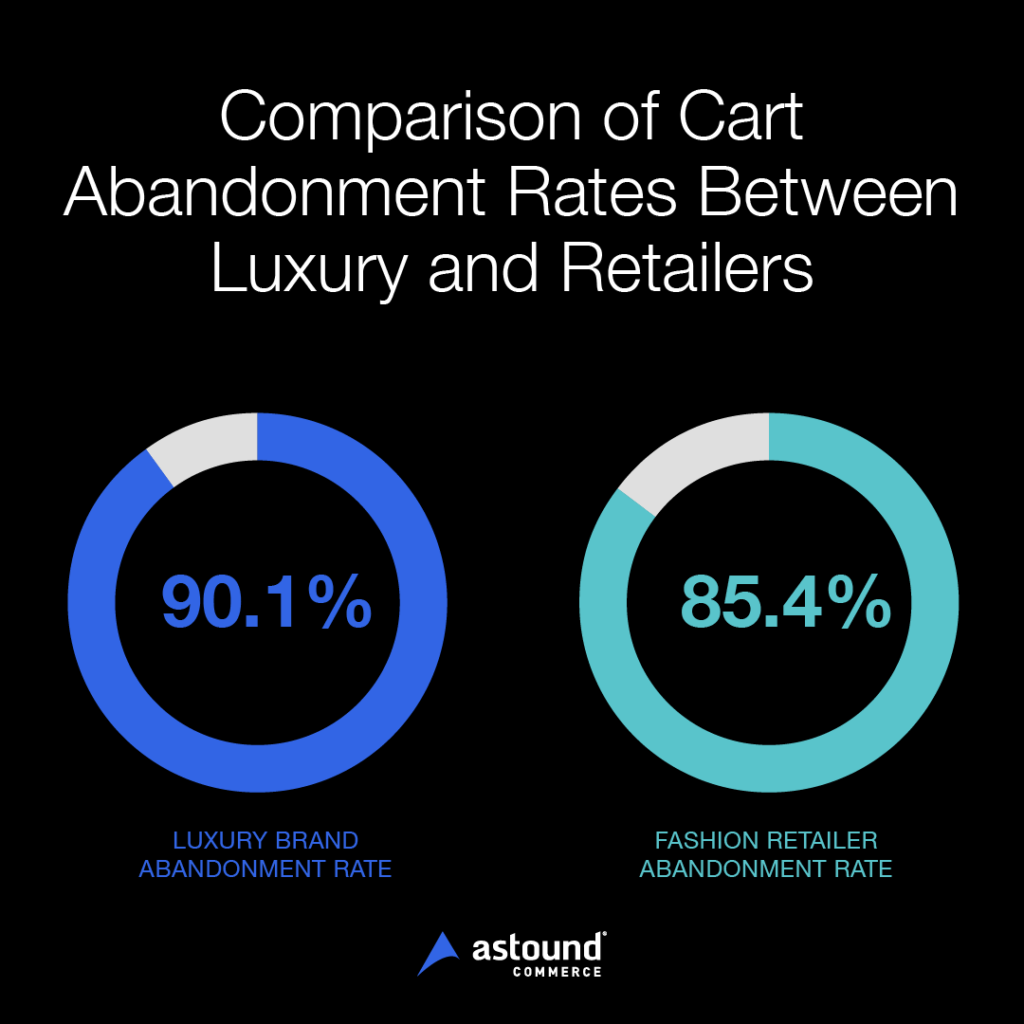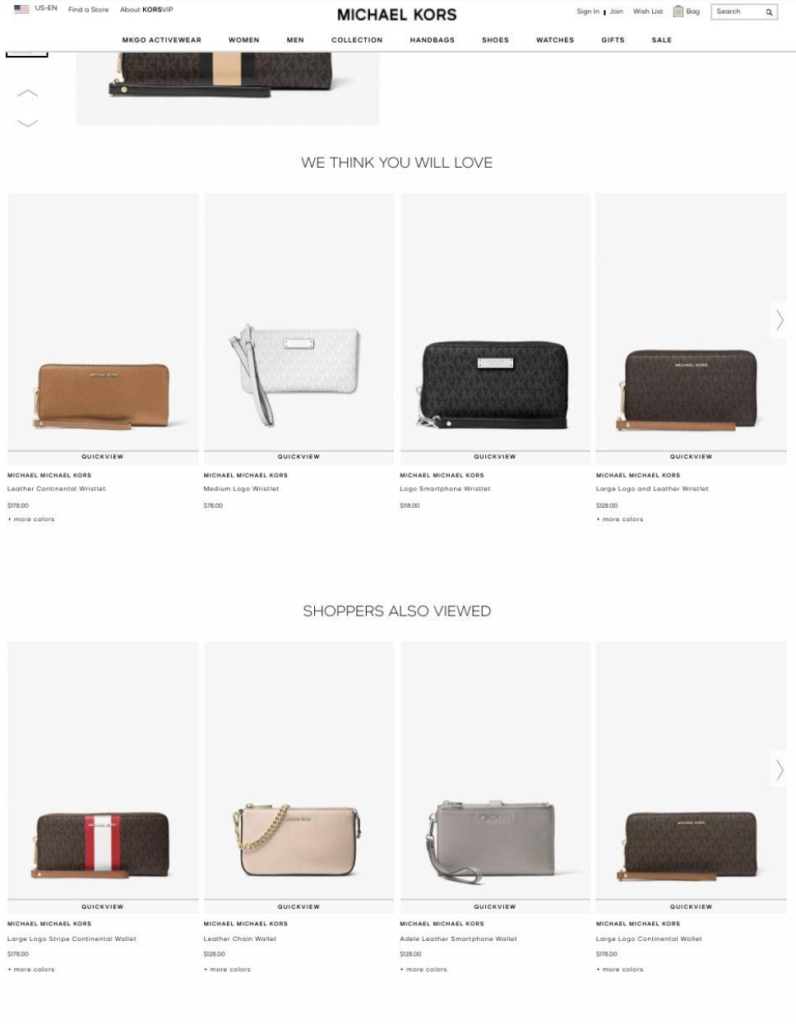In this article, the second in our series on luxury, we share five reasons why Shopify Plus for luxury ecommerce sites represents the future in the luxury space. In Part 1, we explained the benefits of D2C ecommerce for luxury brands.
Shopify Plus, a version of the Shopify platform geared toward high-volume enterprise customers, is a user-friendly platform for creating beautiful and unique ecommerce sites. Here are five ways luxury brands can benefit from going online with a hosted ecommerce platform like Shopify Plus.
1. A professional site appearance. Most luxury businesses would rather have one loyal shopper visit their store than dozens of one-time shoppers. Unfortunately, a high-quality customer doesn’t come easy. So to attract the right demographic, luxury brands should start with how they appear to visitors.
Shopify allows users to customize the appearance of shops and to analyze marketing and visitor data, while Shopify Plus allows additional customization of the checkout—so that luxury brands can create an exclusive look-and-feel. Data collection is crucial to building an exclusive experience that will appeal to a brand’s target audience, as it allows businesses to monitor customers’ behaviors and interests to develop an idea of who the luxury consumer is and what attracts that ideal audience.
Using demographic and shopping preference data about customers, designers can create an ecommerce shop that reflects what customers expect from luxury boutiques. For example, luxury websites should avoid gaudy banners or annoying popups that cheapen the site’s appearance. Instead, the entire website should match the look and quality of the products in-store. And the design must be mobile-friendly, to avoid driving away mobile users who find the site awkward and challenging to use.
2. A user-friendly interface. Once shoppers are on the site, navigation must be seamless. When shoppers enter physical boutiques, they can easily see their favorite brands. Businesses can create the same experience online in the form of a user-friendly interface that highlights brands on the front page, then leads customers through the website—with customer service bots or sales representatives ready via live chat to answer any questions.

Key to conversions is a quick checkout process, so customers can make their purchase before they have time to second-guess their decision. In addition, luxury shoppers expect exclusive options such as gift messaging and packaging in the purchase process.
The Shopify partner network has the necessary tools to create user-friendly experiences, allowing businesses to chat with their customers through the website. They can also customize the appearance of landing pages, product details, and checkout to make the process quick and seamless.
The user-friendly experience shouldn’t end with a website. Emails are shown to be highly effective in the luxury market, with an open rate averaging nearly 45 percent and a conversion rate of nearly 28 percent. A well-timed, carefully crafted email is an invaluable tool in bringing shoppers back to their abandoned carts.
3. A feeling of exclusivity. Personalization is what separates luxury brands from the rest of the pack, and Shopify Plus’s features support the translation of that experience to an online store.
When customers shop online, many would still prefer to try products before investing in a purchase. With Shopify Plus, it’s possible to mimic the in-store experience of trying on products through detailed product images, “try before you buy” services, and easy return policies.
Businesses can also connect to customers through unique gifts that let them know they’re valued. Other examples of online VIP treatment include exclusive offers and invitations to special events. When businesses have a small customer base, like many luxury stores, they can invest their resources into each customer to provide that personalized shopping experience.
Online luxury brands can also give a feeling of exclusivity by offering limited numbers of items, pre-order options, and a waiting list. And site content can increase the perceived product value through detailed product descriptions and styling advice.
4. An improved average order value. Luxury fashion brands can increase their average order value (AOV) through upselling and cross-selling. One way to upsell products is through product suggestions, like
- Complete the look with . . .
- Other customers viewed . . .
- You may also like . . .

And while many mass-market retailers throw time and energy into seasonal sales to meet goals, luxury brands should use a different strategy. Regular and extreme sales can make a brand seem less exclusive. Instead of decreasing prices, businesses should focus on increasing their push to sell full-priced items.
In the absence of seasonal sales, ecommerce clothing brands risk revenue loss when the new stock arrives. But by reducing their inventory and stocking on demand, they avoid excess products when new items arrive. In addition, with Shopify Plus’s nearly limitless store space, luxury brands don’t have to feel restricted in their product offerings.
Lastly, content creators should add compelling calls-to-action—little snippets that encourage visitors to add items to a cart or sign up for specific services—all throughout the website, as they are a proven method of increasing the overall AOV.
5. Increased brand visibility. Traditionally, luxury brands spread their names through word-of-mouth instead of mass marketing. However, that marketing strategy is changing with ecommerce sites. Now businesses can also tap into digital and content marketing to reach their audience.
Shopify Plus connects businesses to their existing social media accounts through an integrated system that allows sharing between the shop and those channels. In addition, search engine optimized pages improve traffic to luxury sites by appearing in typical searches performed by luxury shoppers.
An experienced digital commerce specialist like Astound can accelerate a luxury brand’s awareness while supporting them during growth. First, we can create a scalable and cost-effective strategy, which is critical to business growth. Second, we understand what customer data to identify and target the key demographic most likely to become loyal customers.
If a business invests in a digital commerce specialist with broad, multichannel expertise to help them move online, they stand to gain a whole new generation of luxury consumers. Astound aligns platforms, data flows, end-to-end customer experiences, and compelling storytelling to maximize the brand and business value of every digital commerce touchpoint.
Want us to help your brand seamlessly transition onto Shopify Plus and start building your D2C business? Contact us today to get started.
